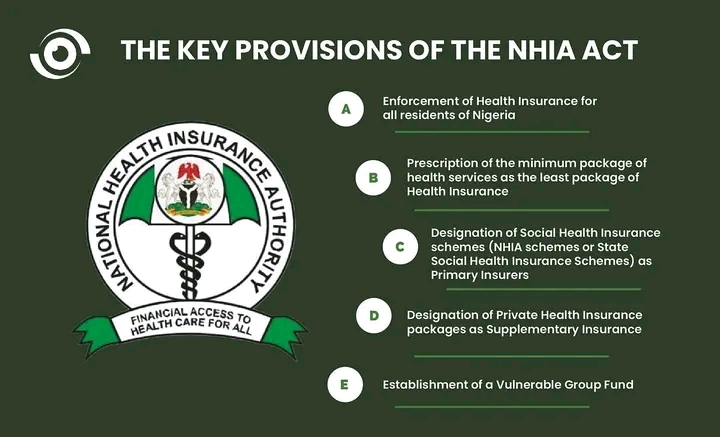President Bola Ahmed Tinubu has ordered the immediate enforcement of mandatory health insurance across all Ministries, Departments, and Agencies (MDAs), in line with the National Health Insurance Authority (NHIA) Act, 2022.
The President directed the Secretary to the Government of the Federation (SGF) to issue a circular mandating compliance, while also calling for constructive engagement with the private sector to prevent unnecessary burdens on businesses.
According to the directive, the enforcement will focus on five key areas:
1. Mandatory Enrollment of MDA Staff: All MDAs must enrol their employees in the NHIA health insurance plan. They may also subscribe to supplementary private coverage in line with the Act.
2. Procurement Compliance: Any entity seeking to participate in public procurement must present a valid NHIA-issued Health Insurance Certificate as part of its eligibility documents.
3. Licensing and Approvals: Applicants for government licenses, permits, and approvals must present a valid Health Insurance Certificate as a precondition for issuance or renewal.
4. Digital Verification Platform: The NHIA will create an online platform to allow real-time verification of Health Insurance Certificates, ensuring transparency and accountability.
5. Internal Compliance Procedures: MDAs are required to work with the NHIA to establish internal systems for verifying certificates and monitoring compliance.
The directive is designed to expand access to health coverage, protect workers, reduce out-of-pocket spending, and promote accountability in both the public and private sectors.
The NHIA Act, signed into law in 2022, makes health insurance compulsory for all Nigerians and empowers the NHIA to drive nationwide coverage. Despite progress in recent years, coverage levels remain significantly low, three years after the law came into effect.
Bayo Onanuga, Special Adviser to the President on Information and Strategy, confirmed the development in a statement on Tuesday, September 3, 2025.



